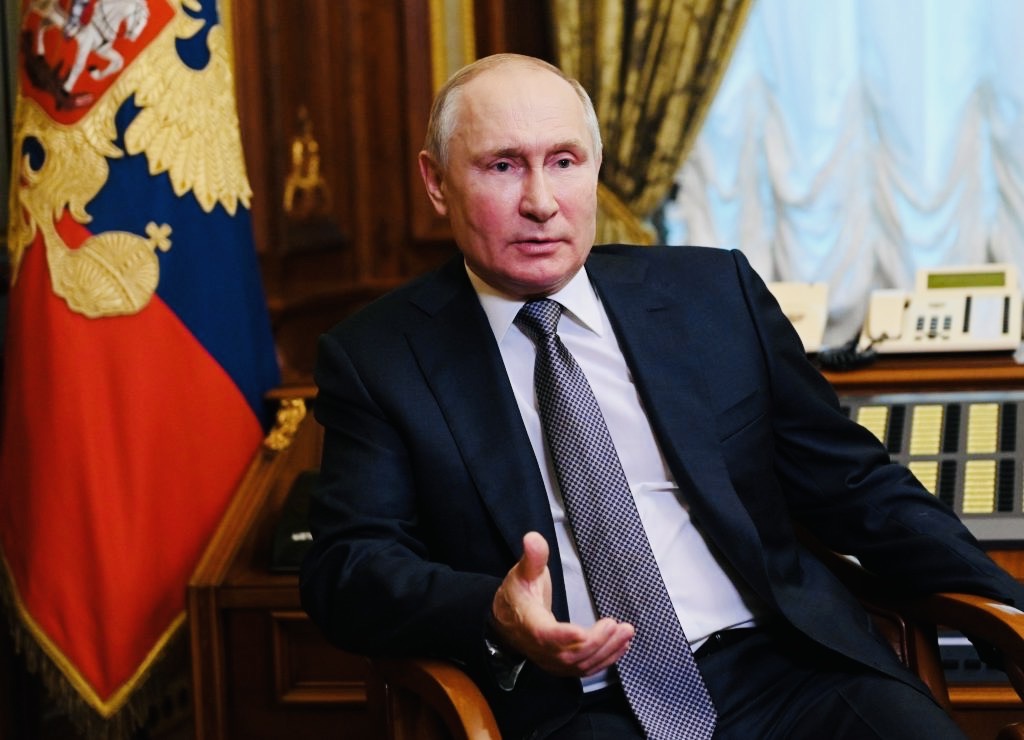Russian President Vladimir Putin has willfully upended the international order that has been in place since the collapse of the Soviet Union in 1991.
With Russia’s land, sea and air invasion of Ukraine, Putin has smashed the political status quo and redrawn the map of eastern Europe, Russia’s former sphere of influence, in a bold, brutal and unsettling breach of the inviolability of national borders.
What began as a crisis of monumental proportions has exploded into a fullscale war on the European continent, ignited a new Cold War with the West, touched off a refugee crisis, and rattled financial markets.
Putin launched the attack in the early hours of February 24 after Russian diplomats, in a campaign of disinformation, insisted that Russia had no intention whatsoever of invading Ukraine.
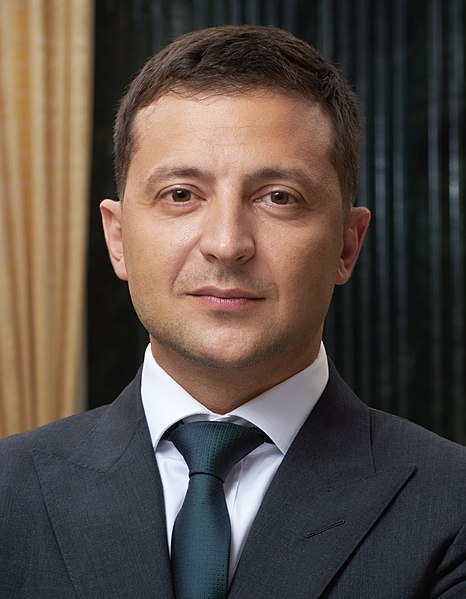
Russian forces today were moving toward Kyiv, Kherson and Kharkiv after having bombed 10 airfields. The consensus in the West is that Russia intends to oust President Volodymyr Zelensky’s government and install a puppet regime. “We will strive for the demilitarization and denazification of Ukraine,” said Putin.
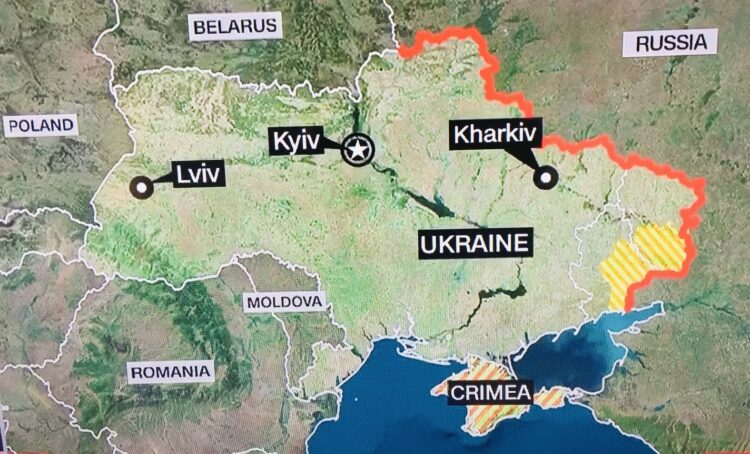
Zelensky, Ukraine’s first Jewish president, compared the attack to Nazi Germany’s invasion of the Soviet Union 1941, and proceeded to sever diplomatic relations with Russia.
Russia’s invasion of Ukraine is yet another chapter in Ukraine’s unfortunate history with its neighbor. After World War I, Russian Bolsheviks crushed the Ukrainian People’s Republic as well as the Western Ukrainian People’s Republic.
Before launching his unprovoked attack, Putin exerted enormous pressure on Ukraine in a relentless campaign of intimidation.
He surrounded Ukraine, massing more than 150,000 troops and armor around its internationally-recognized border. He implicitly threatened to invade Ukraine, once an integral component of the now-defunct Soviet Union.
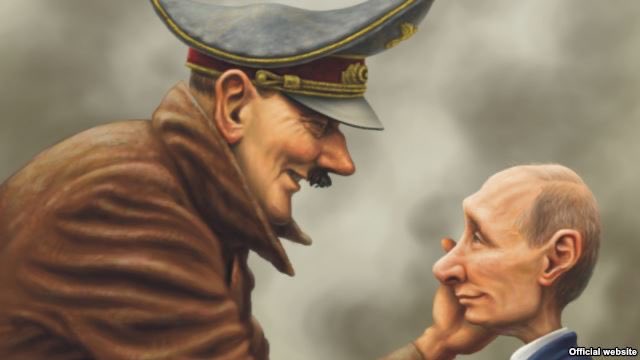
He recognized the independence of the People’s Republics’ of Luhansk and Donetsk, two breakaway separatist regions in eastern Ukraine next to the Russian border.
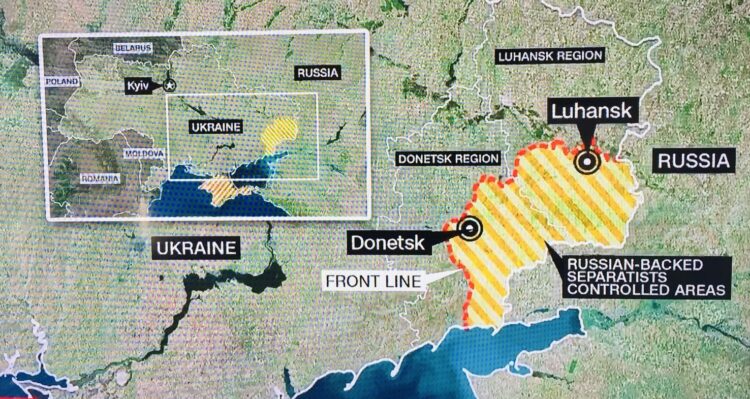
And he archly questioned the very legitimacy of Ukraine’s independence and sovereignty.
Putin’s decision to go ahead with an invasion and occupation of Ukraine sets a horrendous precedent whose reverberations will be heard for decades to come.
Russia’s thrust into Ukraine may encourage Putin to go for broke. He may try to push the pro-Western Baltic states — Latvia, Lithuania and Estonia, all members of the NATO military alliance — to declare neutrality. He may demand that former Soviet satellite countries, such as Poland and Romania, will be cowed to renounce their membership in NATO. Further afield, China, Russia’s ally, could be emboldened to strike Taiwan.
All these scenarios are a sure-fire prescription for further chaos and bloodshed in the 21st century.
Prior to embarking on his latest adventure, Putin laid out a list of tough demands. He demanded a vow from Ukraine that it would never join NATO. He demanded Ukraine’s neutrality, demilitarization and its relinquishment of weapons received from Western powers like the United States and Canada. And he demanded Ukraine’s recognition of Russia’s 2014 annexation of Crimea and its agreement to negotiate with the ethnic Russian separatists of Luhansk and Donetsk.
Zelensky rejected Putin’s harsh ultimatum, giving Putin the pretext to invade Ukraine.
Putin’s resort to force is hardly surprising. He has fought two wars in Chechnya. He invaded Georgia in 2008, carving out zones of influence there. In 2015, he sent an expeditionary force to Syria to prop up the regime of President Bashar al-Assad. His Soviet communist predecessors invaded Hungary in 1956, Czechoslovakia in 1968 and Afghanistan in 1979.
The seeds of the current crisis were planted in 2014, when the pro-Russian Ukrainian president, Viktor Yanukovych, was deposed and replaced by pro-Western politicians. Putin’s response was decisive. Russia annexed the Crimea, which had been part of the Soviet Union until 1954, and threw its weight behind a separatist insurgency in the Donbas. Putin backed the rebels with arms and troops and distributed more than 700,000 Russian passports.
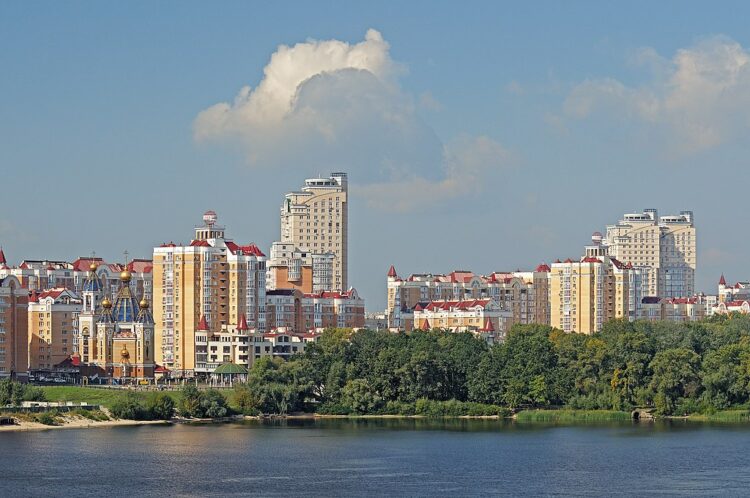
Putin’s decision to challenge Ukraine’s independence is deeply rooted in a firmly-held conviction. He believes that Russians and Ukrainians share the same blood, a common history and constitute a single nation. In other words, he reasons, Ukraine is an indissoluble component of Russia.
In 2005, he delivered a speech bemoaning the fall of the Soviet Union, which he described as “the greatest geopolitical catastrophe of the century” and a tragedy for Russians.
“First and foremost, it is worth acknowledging that the demise of the Soviet Union was the greatest geopolitical catastrophe of the century,” he said. “As for the Russian people, it became a genuine tragedy. Tens of millions of our fellow citizens and countrymen found themselves beyond the fringes of Russian territory.” He was referring, of course, to Ukrainians in Ukraine.
In 2008, he told George W. Bush, the then U.S. president, that Ukraine was an artificial entity.
Last July, Putin wrote a 5,300-word essay, On the Historical Unity of Russians and Ukrainians, in which he defended this thesis. “Russians and Ukrainians are one people, a single whole, occupying the same historical and spiritual space,” he opined. Russians, Ukrainians and Belarusians are the descendants of the Slavic Rus tribe, he added.
To Putin, modern Ukraine is “entirely the product of the Soviet era,” having been incorporated into the Bolshevik state after the collapse of independent Ukrainian states. Putin takes note of the fact that Ukraine was part and parcel of the Russian and Austro-Hungarian empires prior to 1917.
With the passing of the Soviet Union, many Russians and Ukrainians sincerely believed that “our close cultural, spiritual and economic ties would certainly last.”
Ukraine’s “ruling circles” justified independence in 1991 “through the denial of its past,” Putin argues.
“Ukraine was dragged into a dangerous political game aimed at turning Ukraine into a barrier between Europe and Russia, a springboard against Russia,” he wrote in a critique of Western policy. Russians in Ukraine, he went on to say, were forced to “deny their roots” and to think that Russia is their enemy.
Putin decried Ukraine’s veneration of pogromists like Symon Petliura and Nazi collaborators like Stepan Bandera. And he condemned “torch-lit processions” honoring Ukrainian war criminals who collaborated with Nazi Germany.
In closing, Putin was defiant.
“We will never allow our historical territories and people close to us … to be used against Russia,” he said in an oblique reference to Ukraine and Ukrainians.
And in a chilling warning, he said that Ukraine can only attain “true sovereignty” in partnership with Russia … We are one people.”
In a speech on February 21, Putin charged that Ukraine was “entirely and fully created” by Russia during the early Bolshevik period. He appeared to blame the last Soviet leader, Mikhail Gorbachev, for having allowed Ukraine to slip out of the Russian orbit. “This was just madness,” he declared.
Since Putin is of the view that Ukraine is really Russian territory, he does not believe that Russia’s invasion is a violation of its sovereignty.
The vast majority of Ukrainians would sharply disagree with this self-serving claim. Denying Ukrainians their independence would be little more than an arrogant and aggressive imperial land grab of the kind that colonial powers practised in the 19th century and before.
Russia’s invasion is definitely not an “adjustment of borders,” as pro-Russian observers think.
Yet it goes without saying that Russia, the heroic victor over Nazi Germany in World War II, is fully entitled to security. In practice, this means that Ukraine, and Georgia, should adopt a policy of neutrality and be denied membership in NATO.
In retrospect, NATO’s eastward expansion after 1997 was a strategic mistake, lending credence to Moscow’s suspicion that Russia was being encircled by enemies. NATO should assure Putin that the West has no malign designs against Russia, and that Ukraine’s application for inclusion in NATO is now null and void.
That being said, Russia should withdraw its forces from Ukraine, sooner rather than later.
